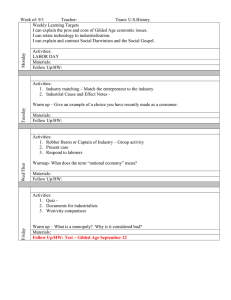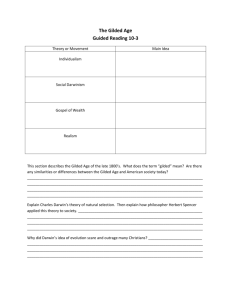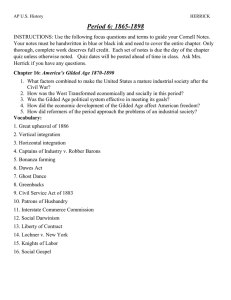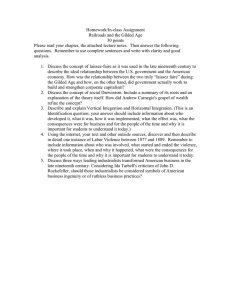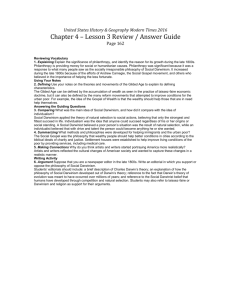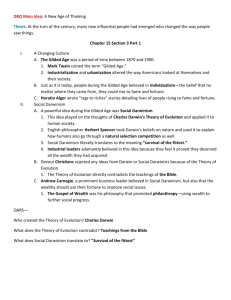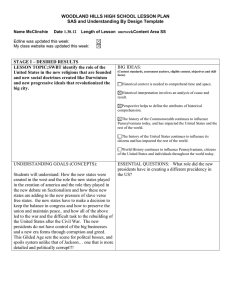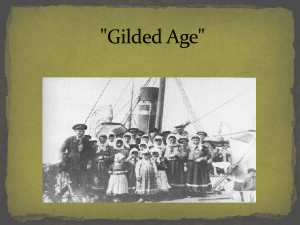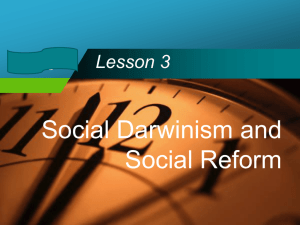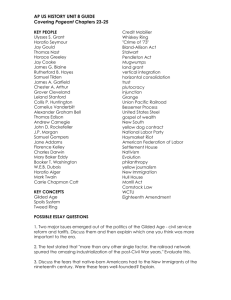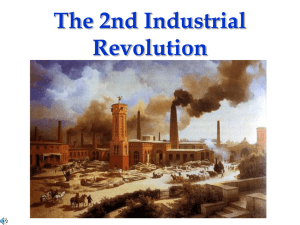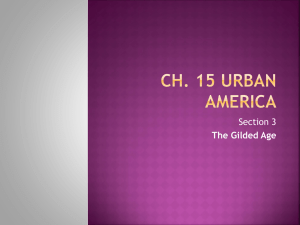Gilded Age Review Questions: 1870-1890 | History
advertisement
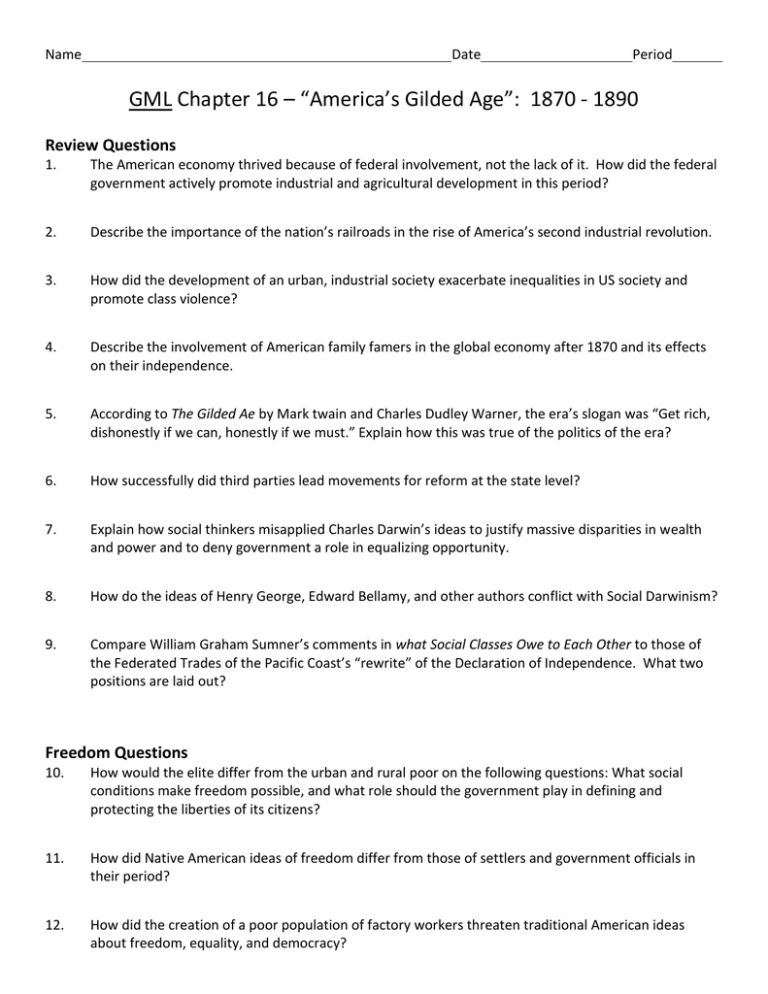
Name Date Period GML Chapter 16 – “America’s Gilded Age”: 1870 - 1890 Review Questions 1. The American economy thrived because of federal involvement, not the lack of it. How did the federal government actively promote industrial and agricultural development in this period? 2. Describe the importance of the nation’s railroads in the rise of America’s second industrial revolution. 3. How did the development of an urban, industrial society exacerbate inequalities in US society and promote class violence? 4. Describe the involvement of American family famers in the global economy after 1870 and its effects on their independence. 5. According to The Gilded Ae by Mark twain and Charles Dudley Warner, the era’s slogan was “Get rich, dishonestly if we can, honestly if we must.” Explain how this was true of the politics of the era? 6. How successfully did third parties lead movements for reform at the state level? 7. Explain how social thinkers misapplied Charles Darwin’s ideas to justify massive disparities in wealth and power and to deny government a role in equalizing opportunity. 8. How do the ideas of Henry George, Edward Bellamy, and other authors conflict with Social Darwinism? 9. Compare William Graham Sumner’s comments in what Social Classes Owe to Each Other to those of the Federated Trades of the Pacific Coast’s “rewrite” of the Declaration of Independence. What two positions are laid out? Freedom Questions 10. How would the elite differ from the urban and rural poor on the following questions: What social conditions make freedom possible, and what role should the government play in defining and protecting the liberties of its citizens? 11. How did Native American ideas of freedom differ from those of settlers and government officials in their period? 12. How did the creation of a poor population of factory workers threaten traditional American ideas about freedom, equality, and democracy? 13. Explain how the courts, by embracing Social Darwinism and a “negative” idea of freedom through the liberty of contract ideal, eroded the freedoms of workers and others. Key Terms 14. “great upheaval” of 1886 (p. 632) 15. Standard gauge (p. 636) 16. Railroad time zones (p.636) 17. Vertical integration (p.639) 18. Standard Oil Company (p.640) 19. “Captains of industry” v. “Robber Barons” (p.641) 20. “The Significance of the Frontier in American History” (p. 643) 21. Bonanza farming (p. 646) 22. Dawes Act (p. 654) 23. Ghost Dance (p.655) 24. Greenbacks (p. 659) 25. Civil Service act of 1883 (p. 659) 26. Interstate Commerce Commission (p. 659) 27. Patrons of Husbandry (p. 660) 28. Iron law of supply and demand (p. 661) 29. Social Darwinism (p. 662) 30. Liberty of contract (p. 664) 31. Lochner v New York (p. 666) 32. Great Railroad Strike of 1877 (p. 666) 33. Knights of Labor (p. 666) 34. Social Gospel (p. 670)
